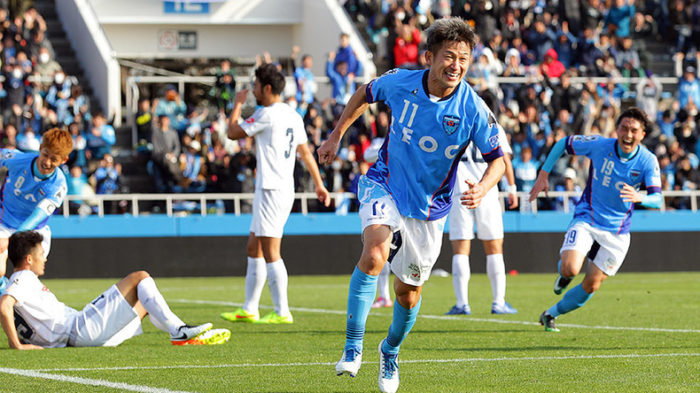Published in the Nikkei Asian Review 8/2/2018
I remember the dawn of professional football (“soccer” to some) in early 1990s Japan. There was considerable doubt as to whether the sport would ever take off. Baseball dominated the airwaves and sumo had long been part of the national conversation. In contrast, there were no headlines or gossip items about football and hardly anyone seemed to have played it.
The newly established “J-League”, I concluded, had all the hallmarks of a bubble era indulgence like the simulacrum of Shakespeare’s Globe Theatre in a Shinjuku suburb. That briefly hosted some celebrated British theater companies before the lack of homegrown support caused it to fold.
The first inkling that Japanese football had stronger roots came when I went to watch an international match between Japan and France. Sitting next to me were a young man in his early 20s and his attractive, fashionably dressed girlfriend. He barely noticed her for the entire match. Instead, he was jumping up and down, yelling complaints at the referee and loudly damning several Japanese players who he clearly felt should not have been picked. He wasn’t there for a pleasant afternoon’s entertainment. He was suffering, as all true football fans must.
My second epiphany was when I heard about a Japanese player who was so committed to the sport that he traveled alone to Brazil at the tender age of 15 and stayed there for seven years, working his way up the club system and finally becoming a first-team choice for Santos, home of the immortal Pele. That man, Kazuyoshi Miura, went on to become a major figure in Japanese football, winning the Asian Player of the Year award, representing his country 89 times and scoring 55 goals in the process.
Japan did indeed turn itself into a football nation in a remarkably short time. It has qualified for six world cups in a row and was ranked in ninth position in the 2002 and 2010 tournaments. Several Japanese players have successfully plied their trade in Europe, including Shinji Okazaki who won an English Premier League medal with Leicester City in 2016.
It is hard to believe this would have happened without the boldness and determination of “King Kazu,” as Miura is known to his fans, and others in that first generation of Japanese professionals.
Stronger for longer
Remarkably, the man himself is still going strong. After 33 seasons – and not a single red card – King Kazu has just renewed his contract with his J-League club. In a few weeks, he will become the world’s first-ever 51-year-old professional footballer, having already beaten the longevity record of the legendary English winger, Sir Stanley Matthews.
Football is much more endurance-sapping than it was when Sir Stanley retired in 1965, but Miura appears to be up to the challenge. In his book “No, I’m Not Quitting,” he writes: “I think back on a wonderful 90 minutes with joy and satisfaction. I want to carry on like this until I die.”
Never the fastest or most physical of players, he gets by on technique and mental toughness. And he still treats the crowds to his jittery “Kazu Dance” celebration when he scores a goal.
Japan is well-known as an ageing society. What is less appreciated is that it is a successfully ageing society in which not only have lifespans lengthened, but the years of useful and rewarding activity have increased too.
According to the Organisation for Economic Co-operation and Development, the labor force participation rate of those over 65 years olds in Japan is 23% versus 6% in the EU and 15% in the OECD as a whole. As well as the world’s oldest footballer, Japan boasts the oldest man to have scaled Mount Everest (at 80) and even the oldest male porn star (at 82).
While most Western governments have been loath to tackle the thorny issues of entitlements, the Japanese authorities have recognized the new reality. The Cabinet Office recently stated that “it is no longer realistic to define everyone over 65 as old” and recommends that people be allowed to delay their pensionable age for many years, in return for higher payments later.
Other countries are ageing rapidly too, from Europe to East Asia. Ultimately, many will follow the Japanese example on pensions. People in all walks of life will work longer and need to compensate for less stamina with accumulated knowledge and judgement.
King Kazu has shown us the way. Long may he dance.

